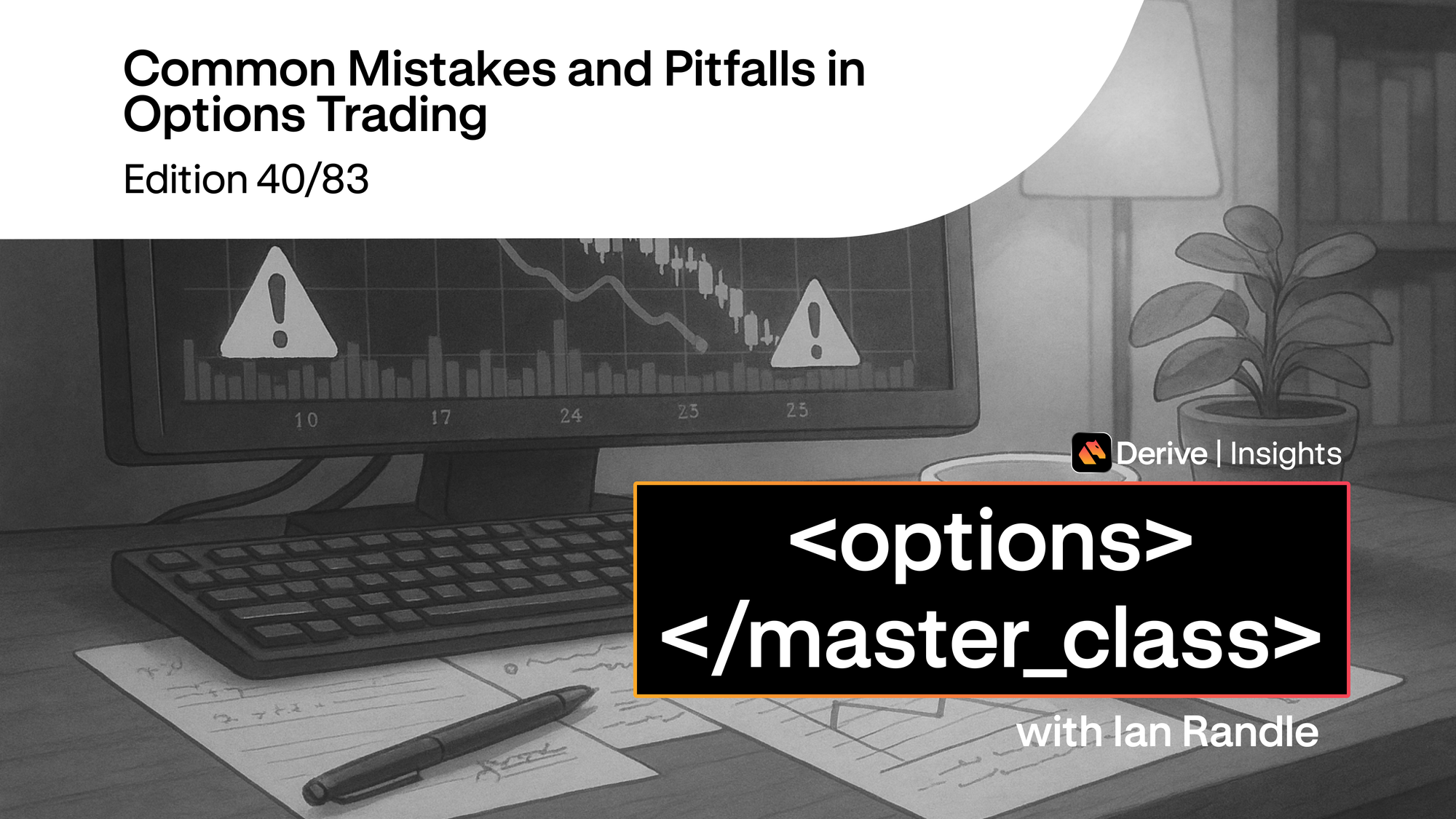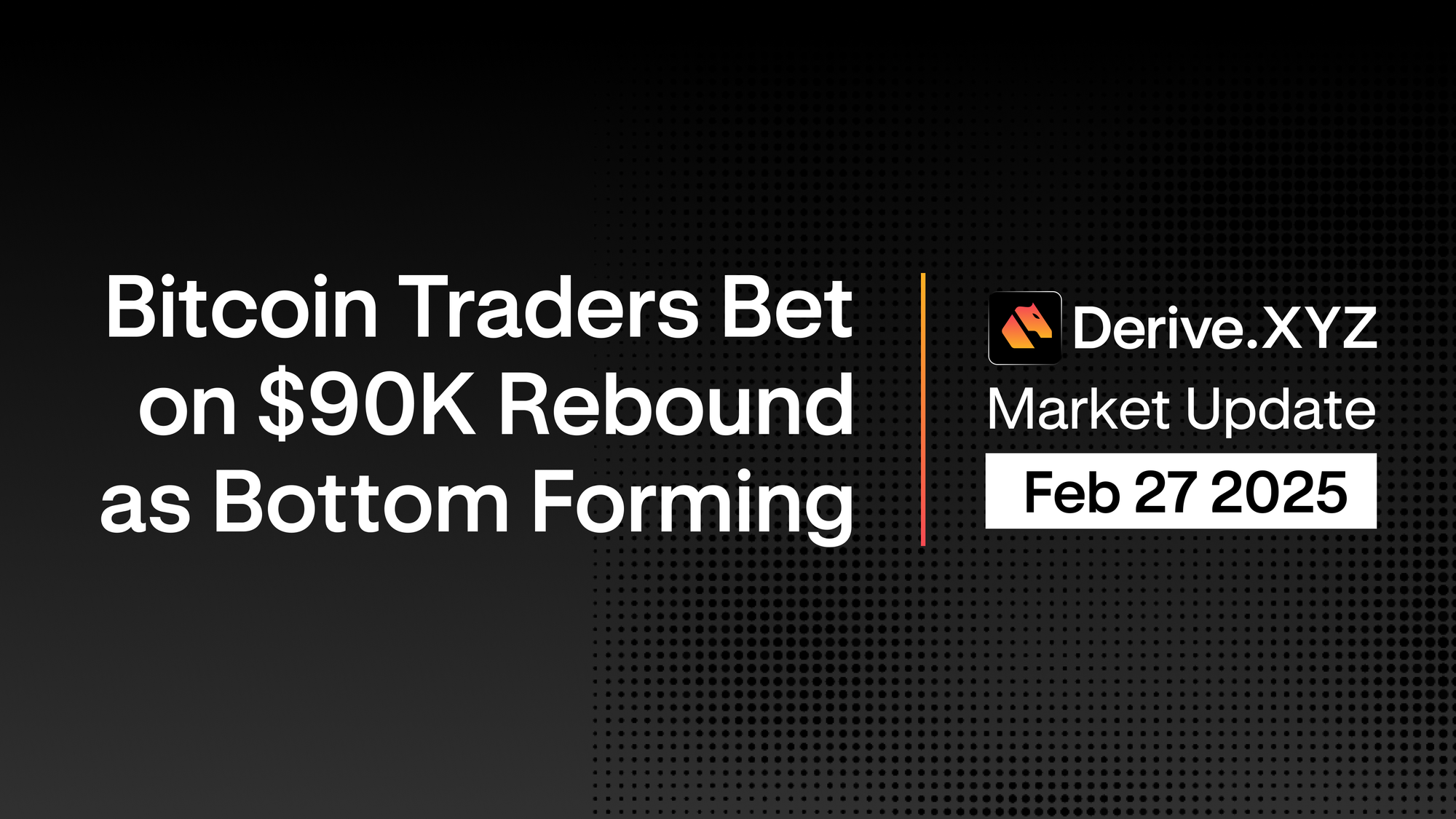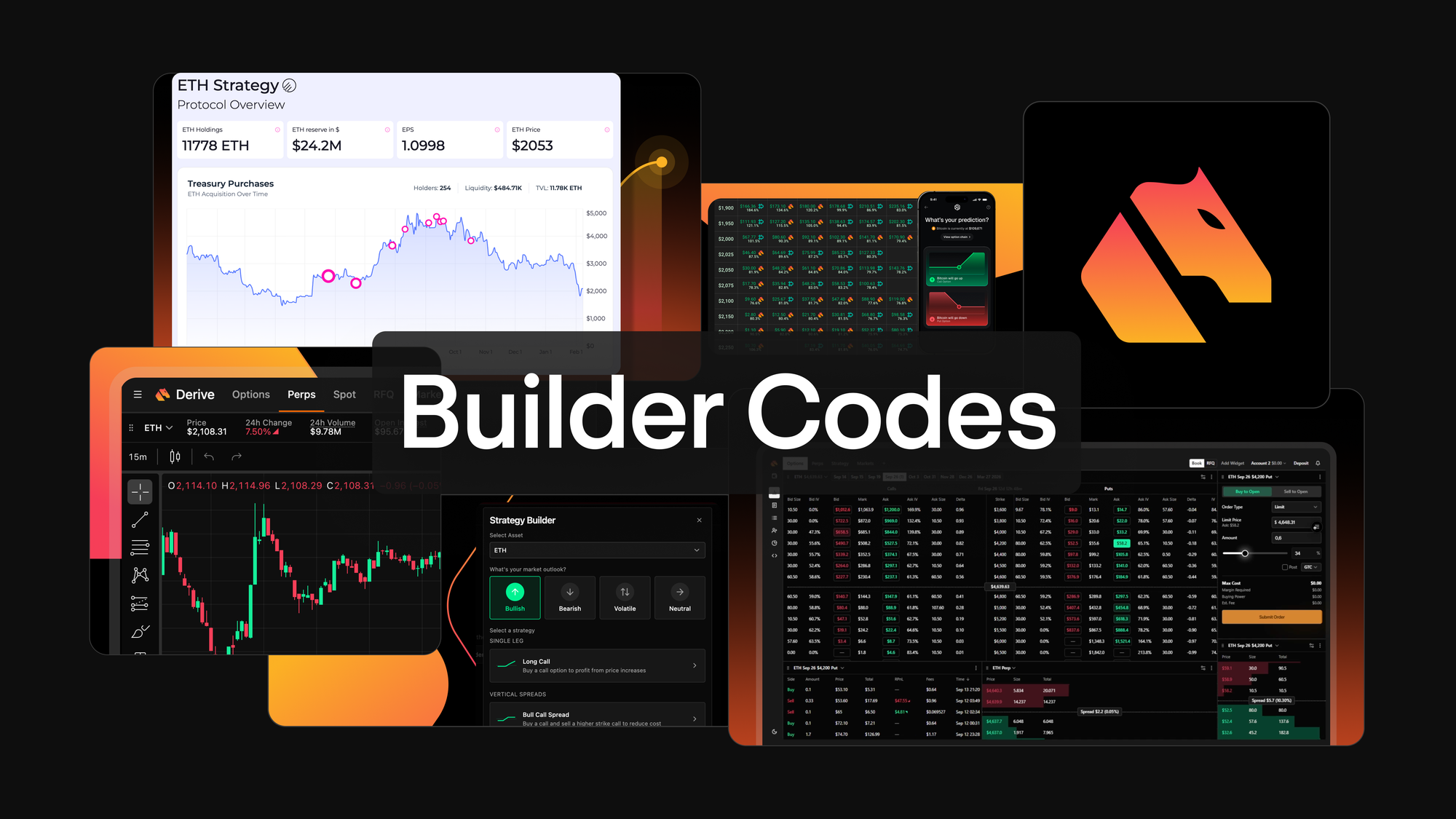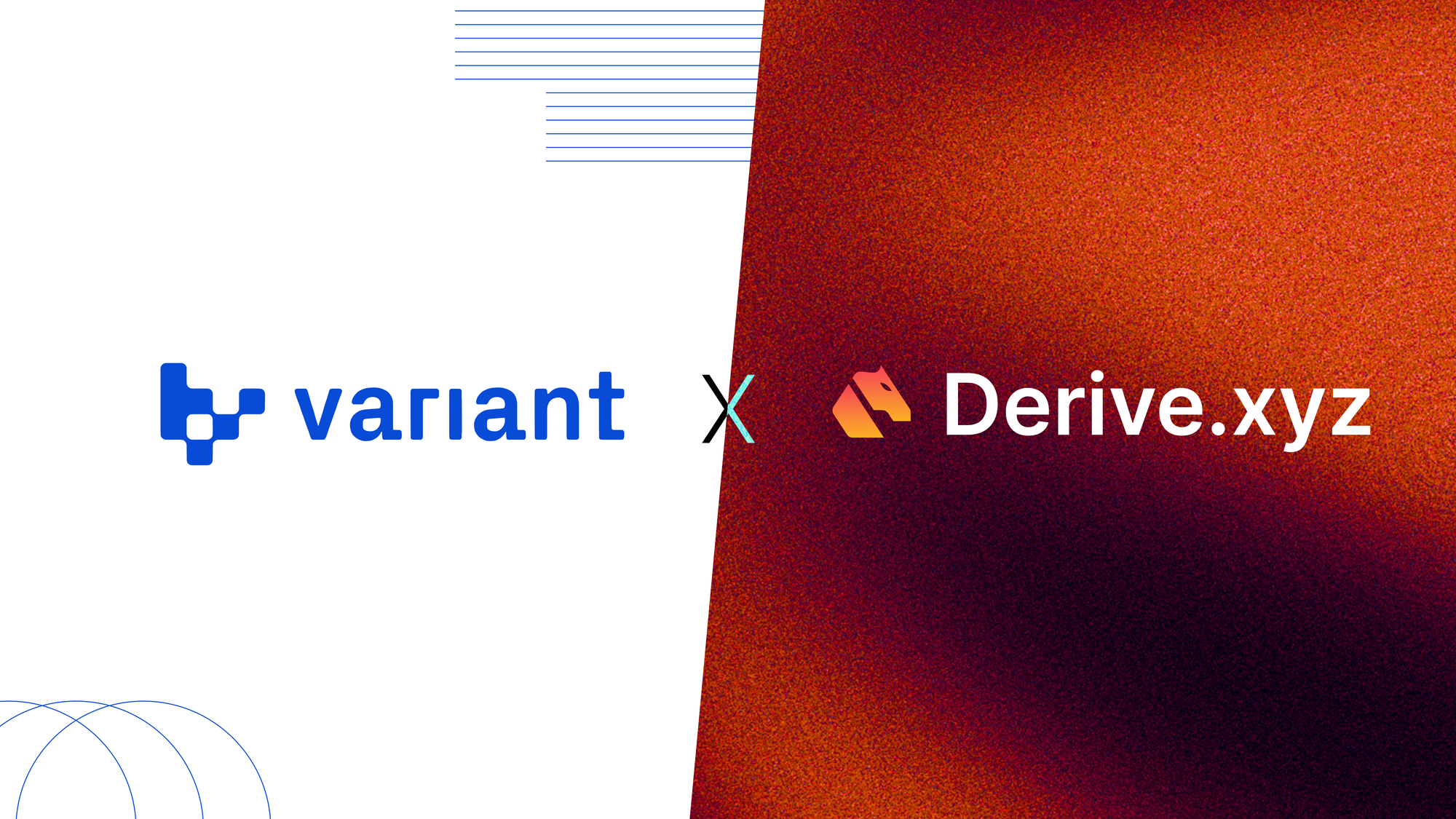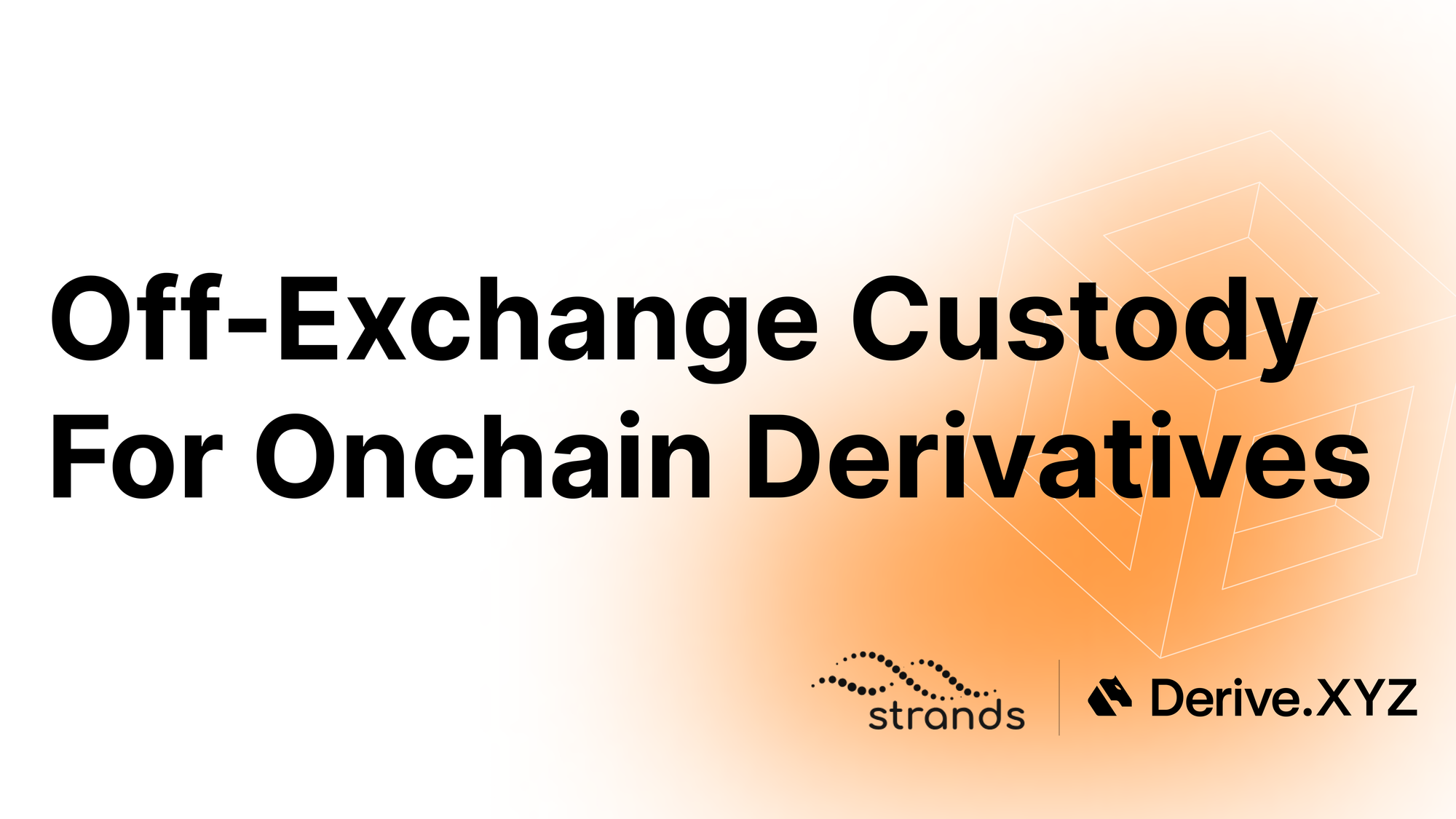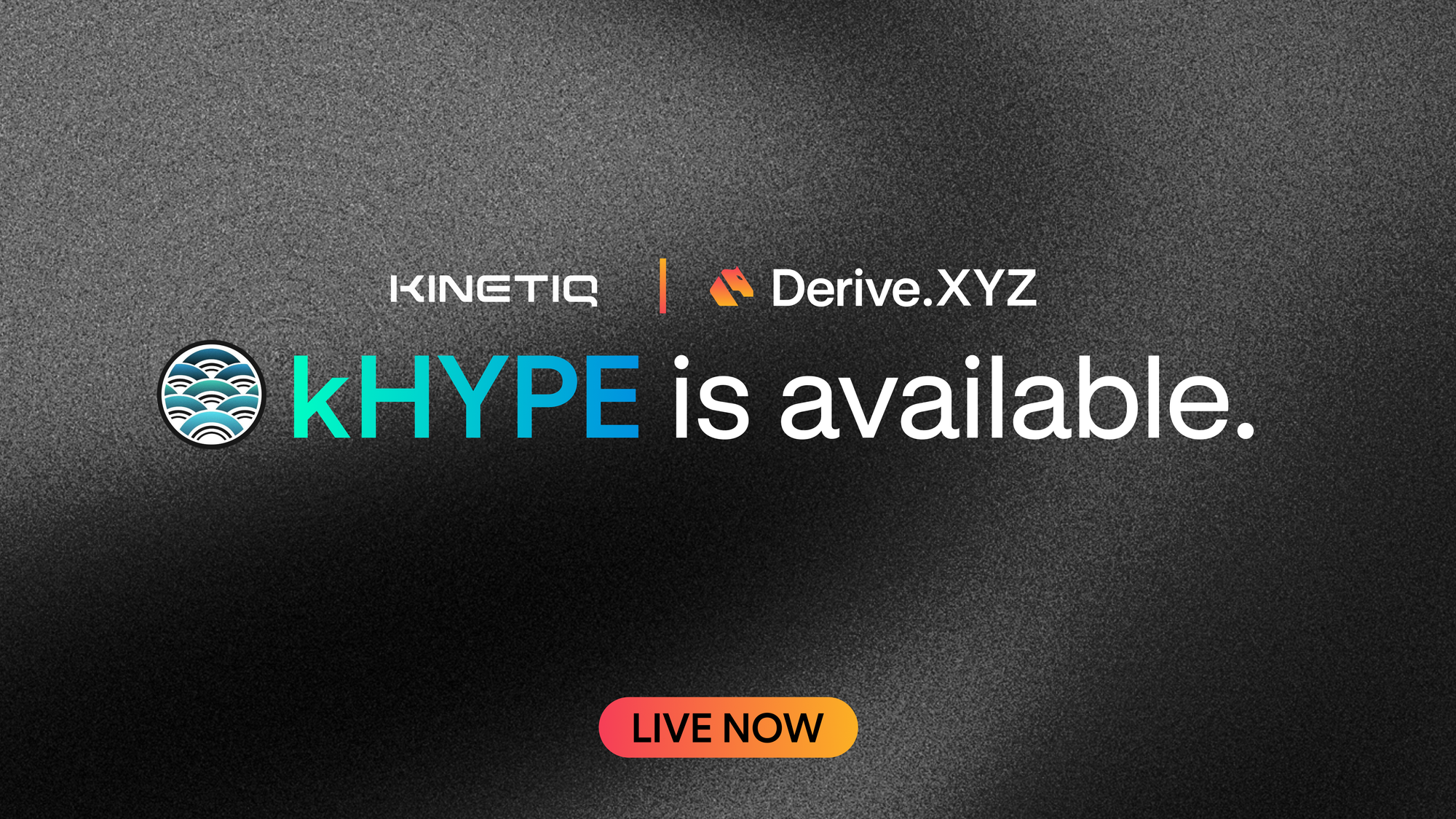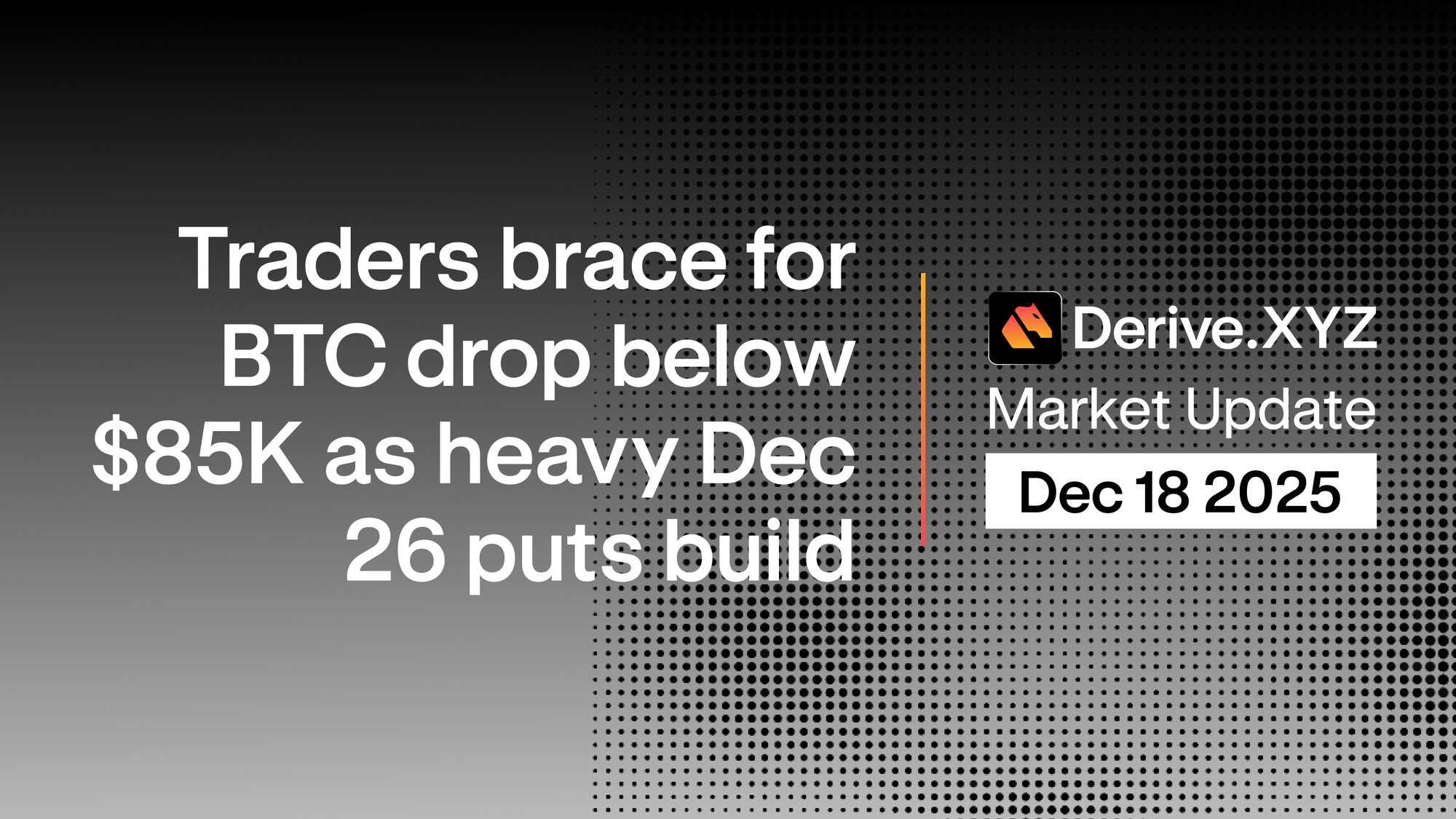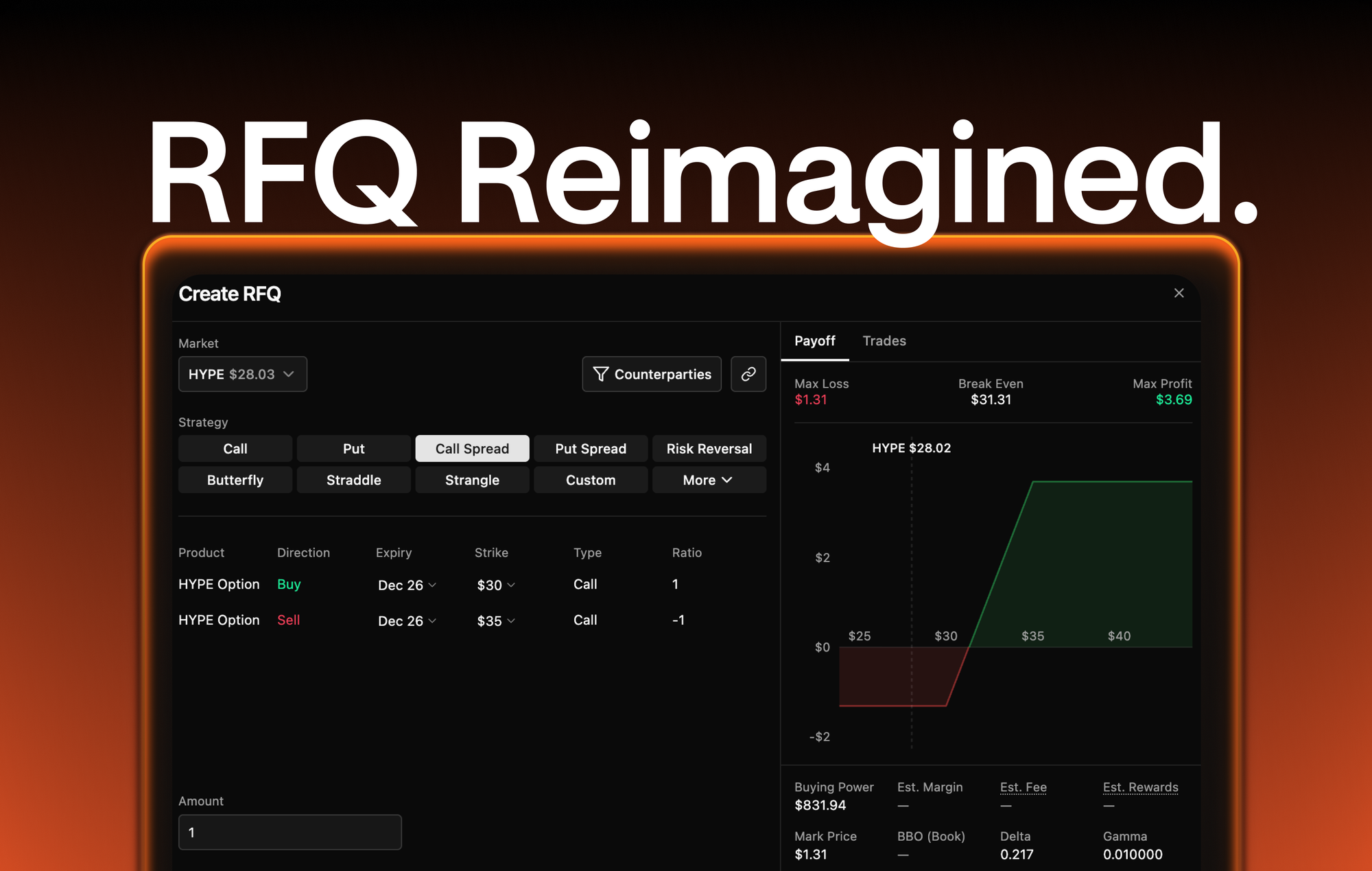Even advanced traders fall into traps. Learn from the most common errors and level up your risk management.
Options offer flexibility, leverage, and unique payoff structures, but they also come with hidden risks.
Understanding where traders (even experienced ones) go wrong is crucial for building long-term success.
Today, we cover the most frequent mistakes and how to avoid them, with specific examples relevant to crypto and Derive.
1. Ignoring the Greeks
Many traders focus only on price direction and ignore Delta, Gamma, Theta, Vega, and Rho.
Neglecting the Greeks leads to poor risk management, unexpected losses, and misunderstood positions.
How to avoid:
- Always check portfolio Greeks before and after trades.
- Use Derive’s Greeks dashboard to spot hidden exposures.
2. Overleveraging and Position Sizing
Options are naturally leveraged. Over-allocating capital or sizing positions too large for your account can lead to quick blowups.
How to avoid:
- Size trades as a small percentage of your total portfolio.
- Use subaccounts to separate risky, aggressive, and core strategies.
3. Selling Naked Options Without Understanding Risk
Selling options “naked” (without offsetting positions) can result in unlimited loss.
This is especially dangerous in volatile crypto markets.
How to avoid:
- Use spreads or defined-risk structures when selling options.
- Always know your maximum loss before entering a trade.
4. Mispricing Volatility
Trading options without understanding implied versus realized volatility leads to buying too high or selling too low.
Crypto volatility can change fast.
How to avoid:
- Compare implied and historical volatility before each trade.
- Use Derive’s analytics to spot volatility extremes.
5. Poor Execution and Chasing Liquidity
Crossing wide spreads, using market orders blindly, or trading illiquid strikes can eat up edge and create large slippage.
How to avoid:
- Use limit orders and RFQ where available.
- Monitor order book depth and trade liquid contracts on Derive.
6. Failing to Adjust or Hedge
Markets move. Not rolling, hedging, or unwinding risk in response to news or price shifts exposes you to avoidable drawdowns.
How to avoid:
- Set alerts or regular review intervals for your portfolio.
- Practice rolling, hedging, and proactive adjustments using Derive’s tools.
7. Not Tracking or Journaling Trades
Failing to log trades, review mistakes, or track PnL makes it harder to improve and identify leaks.
How to avoid:
- Keep a simple trading journal, track each trade and its rationale.
- Use Derive’s subaccounts and export features for easy review.
Your Action Today
- Review your last five option trades or paper trades.
- Identify which of these pitfalls you have encountered or are at risk of repeating.
- Pick one area to improve in your next trade, whether it is sizing, Greeks, execution, or journaling.
Tomorrow, we will look at psychology and discipline in options trading — the mindset required to keep your edge.
Coming tomorrow:
Day 41 – Psychology and Discipline in Options Trading
Hasta manana
Cpt




